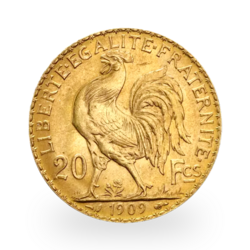Fitch's downgrade of France's debt rating last Friday was expected. It remains to be seen whether Moody's and Standard & Poor's will follow suit on October 24 and November 28, which seems quite likely. Since losing its triple-A rating in 2013, France has seen a series of downgrades. However, this latest downgrade is more worrying: the move from AA to A puts France in a lower category – from “premium” to “average,” so to speak – at a time when many international investors are statutorily required to invest only in double-A or triple-A rated securities. And that matters when 54% of the debt is purchased by foreigners. France risks losing some of its regular buyers, which will automatically lead to a rise in interest rates.
The new Prime Minister, Sébastien Lecornu, will attempt to get a budget passed, with more success than his predecessors. The stage is set, and the show can begin. He is revising downwards the already modest targets set by François Bayrou, from €44 billion in savings to around €30 billion, almost half of which will be absorbed by the increase in the debt burden. In other words, peanuts in the end. The budget deficit is expected to remain at around 5% of GDP, the worst performance in the eurozone, while political life remains paralyzed by three irreconcilable blocs... Enough to make the markets cringe.
What prospects can we foresee?
Firstly, the euro protects us, but it is a poisoned chalice that allows us to postpone necessary structural reforms. There is no doubt that with the franc, we would already be bankrupt! We are freeloading on a currency that benefits from the seriousness of the countries of Central and Northern Europe.
The euro is holding up all the better as the dollar plunges – by more than 10% against it since January 1. But this support will disappear if investors start to become too concerned about France: they will then turn away from its Treasury bills and rates will soar – as was the case for Greece in 2010.
Secondly, France is “too big to fail”, because the entire eurozone would collapse. Could we imagine a bailout plan like the one for Greece in 2010? Impossible: Greece's debt amounted to €350 billion, while France's is ten times higher. No, the ECB would be called in to rescue the situation by buying up these bonds that nobody wants anymore – by printing money – which would automatically boost inflation. And no doubt, in return, it would demand a drastic plan to reduce public spending, concocted with the IMF. A bitter pill to swallow, as Greece has learned to its detriment. A good way for those in power to shirk their responsibilities. Social unrest is to be expected!
Thirdly, the US bond market is in bad shape: the deficit is out of control, interest rates are soaring, and the risk of a crisis is very real, as we have seen. Remember that US debt stands at $37 trillion, ten times that of France. If a crash were to occur, it would be difficult to predict the consequences of such a cataclysm: the euro could then serve as a lifeline, and France would be temporarily saved... or everything could collapse and we could blame the Americans! In reality, the entire bond market is faltering – including in Japan – and even Germany, despite its AAA rating, is seeing its rates rise. The proof: the price of gold continues to climb.
In short, France is stuck, no longer truly in control of its own destiny. We can only count on luck... and gold.
Reproduction, in whole or in part, is authorized as long as it includes all the text hyperlinks and a link back to the original source.
The information contained in this article is for information purposes only and does not constitute investment advice or a recommendation to buy or sell.

















